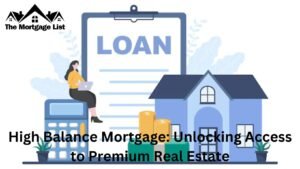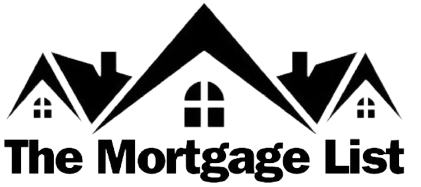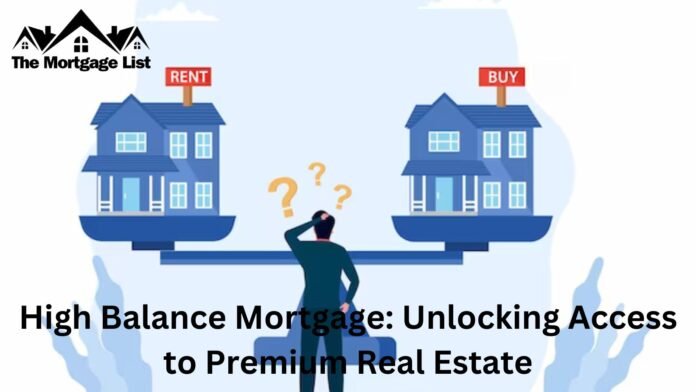Introduction to High Balance Mortgage
In the realm of real estate financing, high balance mortgages have emerged as a vital tool for prospective homebuyers seeking to enter premium markets. With escalating property prices, especially in metropolitan areas, traditional mortgage options often fall short in covering the full cost of a home purchase. This is where high balance mortgages step in, bridging the financial gap and facilitating homeownership in coveted neighborhoods.
Understanding High Balance Mortgage Limits
What are High Balance Mortgage Limits?
High balance mortgage limits refer to the maximum loan amounts that lenders are willing to provide for properties in specific high-cost areas. These limits vary depending on the location and are set by regulatory authorities such as the Federal Housing Finance Agency (FHFA).
Factors Affecting High Balance Mortgage Limits
Several factors influence high balance mortgage limits, including the median home prices in a given area, prevailing interest rates, and local market conditions. Additionally, regulatory changes and economic factors can impact these limits over time.
Benefits of High Balance Mortgages
Lower Down Payments
One of the primary advantages of high balance mortgages is the ability to secure financing with lower down payments compared to traditional jumbo loans. This makes homeownership more accessible to a broader range of buyers, particularly first-time homebuyers and those with limited savings.
Competitive Interest Rates
Contrary to popular belief, High-Rate Mortgages often come with competitive interest rates, making them an attractive option for borrowers looking to finance high-value properties without incurring excessive borrowing costs.

Accessibility to Expensive Markets
High balance mortgages enable buyers to penetrate exclusive real estate markets where property prices exceed the conventional loan limits. This opens up opportunities for individuals and families to settle in prestigious neighborhoods that were previously out of reach.
Qualifying for a High Balance Mortgage
Credit Score Requirements
While High-Rate Mortgages typically require a strong credit history, there are options available for borrowers with less-than-perfect credit. Lenders may consider alternative factors such as employment stability and income consistency in their evaluation process.
Income Verification
Prospective borrowers must demonstrate sufficient income to support the mortgage payments. Lenders may request pay stubs, tax returns, and other financial documents to verify the applicant’s earnings and assess their ability to repay the loan.
Debt-to-Income Ratio
Maintaining a healthy debt-to-income ratio is crucial when applying for a High-Rate Mortgage. Lenders evaluate the ratio of the borrower’s monthly debt payments to their gross monthly income to determine their financial stability and repayment capacity.
High Balance Mortgage vs. Conventional Mortgage
Key Differences
While both High-Rate Mortgages and conventional mortgages serve the purpose of financing home purchases, there are notable distinctions between the two. Conventional mortgages adhere to standard loan limits set by government-sponsored enterprises (GSEs) like Fannie Mae and Freddie Mac, whereas High-Rate Mortgages cater to higher-priced properties in specific regions.
Which One is Right for You?
Choosing between a High-Rate Mortgage and a conventional mortgage depends on various factors, including the property’s location, price range, and the borrower’s financial profile. Consulting with a knowledgeable mortgage advisor can help determine the most suitable option based on individual circumstances.
How to Find High-Rate Mortgage Lenders
Researching Lenders
Conducting thorough research is essential when searching for High-Rate Mortgage lenders. Look for reputable financial institutions with experience in financing luxury properties and inquire about their loan programs and eligibility criteria.
Comparing Rates and Terms
Obtaining quotes from multiple lenders allows borrowers to compare interest rates, loan terms, and closing costs to find the most favorable option. Consider both short-term and long-term implications when evaluating loan offers to make an informed decision.

Tips for Getting Approved for a High Balance Mortgage
Improving Credit Score
Taking proactive steps to improve creditworthiness, such as paying off outstanding debts and maintaining a clean credit history, can enhance the likelihood of loan approval and qualify for better terms.
Saving for a Larger Down Payment
While High-Rate Mortgages may require lower down payments compared to jumbo loans, saving for a larger down payment can reduce the loan-to-value ratio and potentially result in lower monthly payments and interest costs.
Lowering Debt-to-Income Ratio
Minimizing existing debt obligations and increasing income streams can help lower the debt-to-income ratio, improving the borrower’s financial standing and increasing their chances of securing a high balance mortgage.
Common Misconceptions About High Balance Mortgages
Myth #1: High Balance Mortgages are Only for the Wealthy
Contrary to popular belief, High-Rate Mortgages are not exclusively reserved for affluent individuals. They cater to a diverse range of borrowers seeking to finance properties in high-cost areas, providing access to premium real estate markets.
Myth #2: High Balance Mortgages Have Exorbitant Interest Rates
While High-Rate Mortgages may involve slightly higher interest rates compared to conventional loans, they remain competitive within the current lending landscape. Factors such as creditworthiness, loan-to-value ratio, and market conditions influence the interest rate offered by lenders.
Case Studies: Success Stories with High Balance Mortgages
Real-life Examples of Homebuyers Utilizing High Balance Mortgages
Examining real-life case studies can offer valuable insights into the benefits and challenges associated with High-Rate Mortgages. By showcasing successful homebuyers’ experiences, these case studies illustrate the practical application and effectiveness of high balance mortgage financing.
Risks Associated with High Balance Mortgages
Market Volatility
High-Rate Mortgages may be susceptible to market fluctuations, particularly in regions with volatile real estate dynamics. Borrowers should be aware of potential risks and plan accordingly to mitigate any adverse effects on their financial situation.
Potential for Higher Monthly Payments
Depending on the loan terms and prevailing interest rates, High-Rate Mortgages may result in higher monthly payments compared to conventional mortgages. It’s essential for borrowers to assess their budgetary constraints and ensure they can comfortably afford the ongoing payments.
Alternatives to High Balance Mortgages
Jumbo Loans
For borrowers seeking financing beyond the limits of High-Rate Mortgages, jumbo loans offer a viable alternative. These non-conforming loans cater to high-value properties and provide flexibility in loan amounts and eligibility criteria.
Government-backed Loans
Government-backed loan programs such as FHA loans and VA loans provide alternative financing options for eligible borrowers, including those with limited down payment savings or unique financial circumstances. These programs offer competitive terms and facilitate homeownership for a diverse range of individuals and families.
High Balance Mortgage Trends in the Real Estate Market
Current Market Analysis
Analyzing current trends in the real estate market reveals the evolving dynamics of High-Rate Mortgage lending. From shifting interest rates to changes in consumer preferences, understanding market trends is essential for making informed decisions about home financing.
Predictions for the Future
Looking ahead, experts anticipate continued growth in the demand for High-Rate Mortgages as property prices escalate in high-cost areas. Innovations in mortgage lending and regulatory changes may shape the landscape of High-Rate Mortgage financing, presenting both opportunities and challenges for homebuyers and lenders alike.
The Role of High Balance Mortgages in Economic Growth
Stimulating Real Estate Activity
High-Rate Mortgages play a significant role in driving real estate activity in high-cost markets, stimulating construction, and contributing to economic growth. By facilitating home purchases in premium neighborhoods, these mortgages support local businesses and enhance property values.
Impact on Housing Affordability
While high balance mortgages offer accessibility to premium real estate markets, they also raise concerns about housing affordability and income inequality. Balancing the demand for upscale housing with the need for affordable housing options remains a critical challenge for policymakers and stakeholders.

Conclusion
In conclusion, High-Rate Mortgages serve as a vital financing option for homebuyers looking to purchase properties in high-cost areas. By providing access to premium real estate markets and offering competitive terms, these mortgages empower individuals and families to achieve their homeownership goals. However, prospective borrowers should carefully evaluate their financial circumstances and consider the risks and benefits associated with High-Rate Mortgage financing before making a decision.
FAQs on High Balance Mortgages
- What is the minimum credit score required for a high balance mortgage?
The minimum credit score requirements for High-Rate Mortgages vary depending on the lender and the specific loan program. While a higher credit score typically improves eligibility and may result in better terms, some lenders offer options for borrowers with less-than-perfect credit.
- Can I use a high balance mortgage to purchase a second home or investment property?
High balance mortgages are primarily intended for primary residences, but some lenders may offer financing options for second homes or investment properties. It’s essential to discuss your specific needs and goals with a mortgage advisor to explore available options.
- Are high balance mortgages available for properties located outside of designated high-cost areas?
High-Rate Mortgages are specifically designed for properties located in designated high-cost areas, as determined by regulatory agencies such as the FHFA. Properties in standard market areas may be eligible for conventional mortgage financing.
- What are the closing costs associated with a high balance mortgage?
Closing costs for high balance mortgages typically include fees for loan origination, appraisal, title insurance, and escrow services. The exact amount varies depending on the lender, loan amount, and location of the property.
- How long does it take to process and approve a high balance mortgage application?
The timeline for processing and approving a high balance mortgage application varies depending on factors such as the lender’s workload, the complexity of the application, and the completeness of the borrower’s documentation. On average, the process can take anywhere from several weeks to a few months from application to closing.
Read More:>

